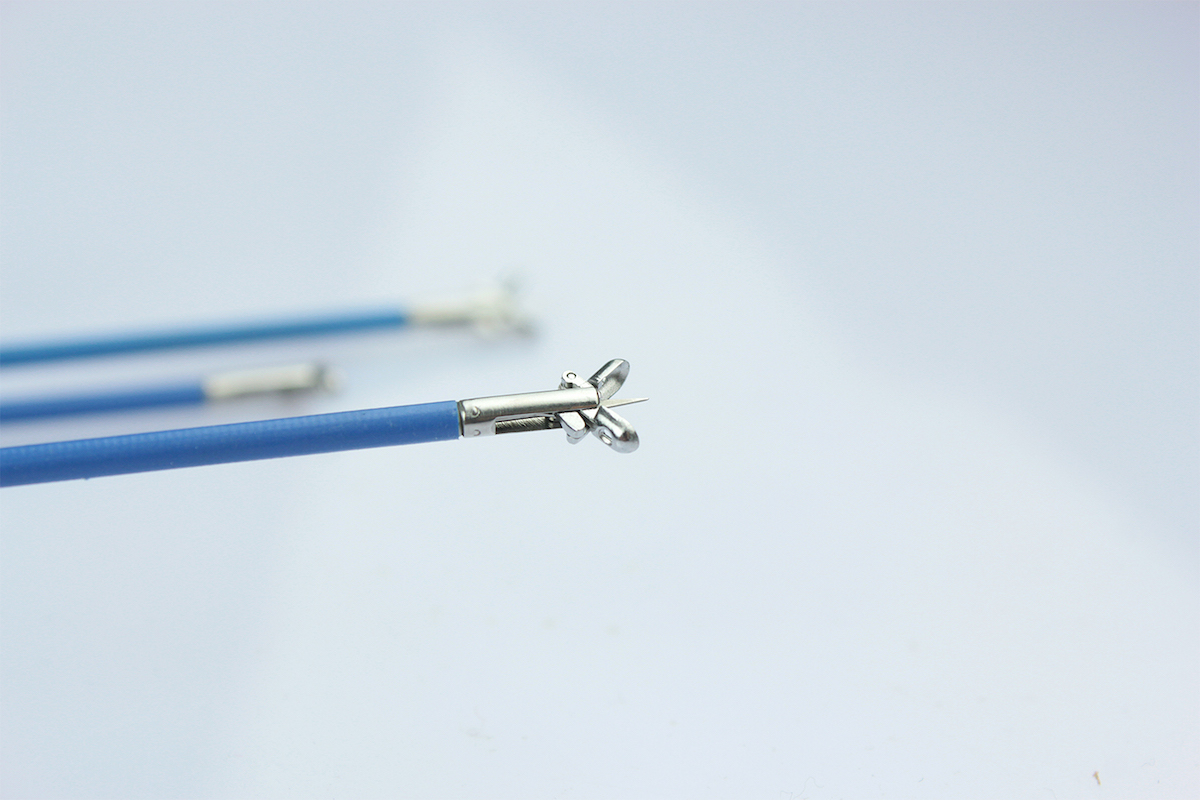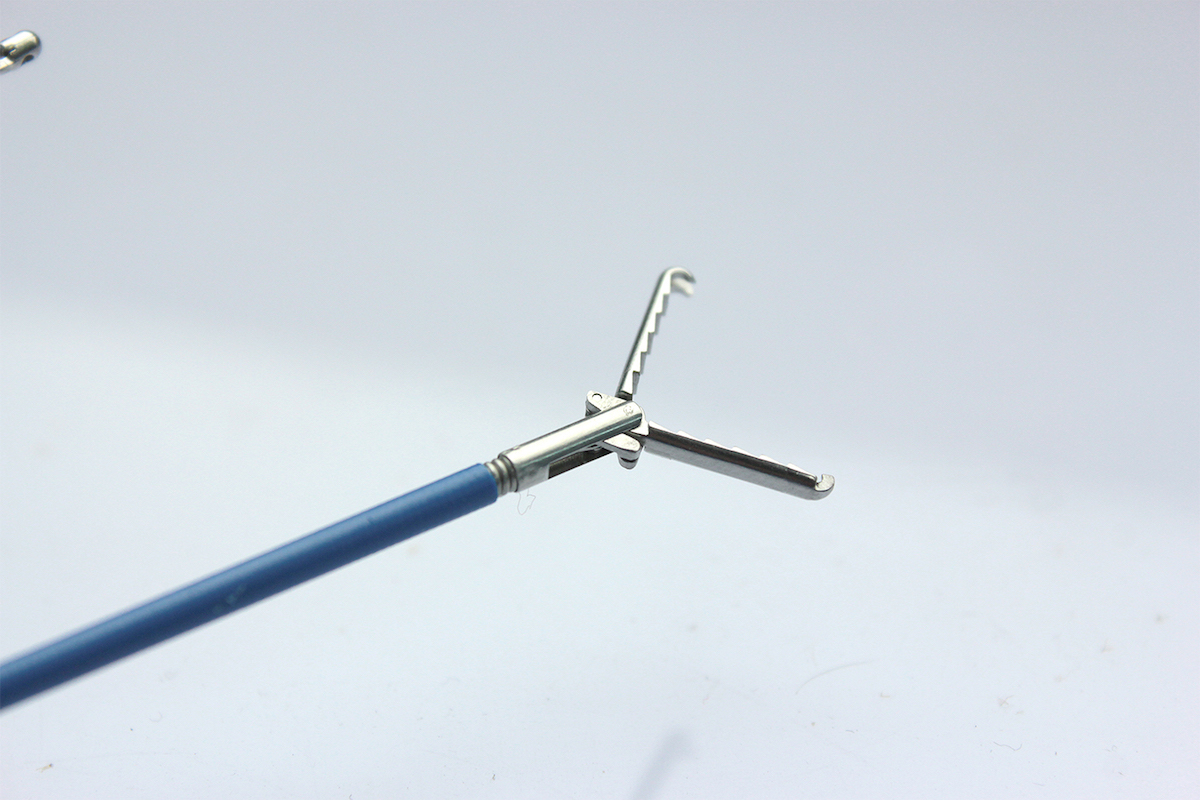Single Use Biopsy Forceps: The Importance of an Accurate Diagnosis

KWT Medicals News • Mar 22, 2016
Apathologist’s Perspective: The Importance of an Accurate Diagnosis.
In Pathology it’s all about how much tissue you have so any technology that puts more tissue on the slide for us is always going to be an advantage, in particular, there’s obviously a very wide spectrum of disease and gastroenterology.
So both inflammatory and me aplastic diseases and all of those require much tissue as possible but two instances where we see inadequate biopsies are large lesions that you’re looking for invasive cancer and submucosal lesions and we find the KWT forceps can sample both of those better than the small ones.
Tissue depth is very important what I mean by that is the deeper down it goes can say how deep the pathologic process extends that’s very important in cancer. What we don’t want and this is part of the unsatisfactory specimens we sometimes receive with the smaller forceps is it there’s a large lesion and thereby up seeing the superficial they don’t get deep enough.
and so we tell the clinician you have a villous adenoma with severe dysplasia we do not see the invasive component. Because it’s deeper to that tissue, so those are the types of patients that then need to be brought back so depth is very important the KWT forceps appears to get deeper into through the lamina propria into the superficial submucosa where you can see an invasive neoplastic process.
Now there are other submucosal processes too that often create diagnostic dilemmas or the gastroenterologist or the endoscopist and pathology those are going to be things like lipomas carcinoid tumors gastrointestinal stromal tumors these are submucosal processes that are often inadequately sampled with the normal small forceps and the Jumbo forceps again seem to grab better tissue.
How KWT Biopsy Forceps Contribute to Operational Efficiency
The efficiencies that we gain have to do with how many pieces of tissue, we can put in a tissue block. So we have a standard protocol in this institution and some of the in-office pathology laboratories where you limit the number of pieces of tissue you can put in a given block.
So say you receive ten pieces of tissue that are going to be two blocks that have to be processed, Each block has a specific cost associated with it so if you can take more tissue with the Jumbo forceps and instead of taking ten small biopsies you can take five forceps biopsies and actually sample a greater surface area of the colon you only have to embed and process a single block.
So this has tremendous cost saving at a laboratory level when you do that so that’s where we see it on the efficiency side.
Financial Impact
The financial impact of a release cope is significant and if we look at not just the laboratory cost which usually runs between three and five hundred dollars. there is obviously the scope charge the technical scope charges as well which run anywhere from 1,300 in a free-standing facility to 2200 in the hospital environment.
So you taking some significant financial burden at 2% or so that I said that we’re inadequate or you need to bring patients back. If you multiply that across between seven-eight thousand and das capiz that we perform in this type of facility that’s a lot.
Out of 8,000 Endoscopies, 2% of the samples are inadequate.
Repeat endoscopy cost due to inadequate samples = $ 1,300 to $ 2,200.
Lab fees cost between $300 and $500
The financial cost to the hospital = approximately $400,000.
But ultimately it’s not really the financial burden is the reputation burden. You don’t want to be in a situation where you have to explain to a patient that you know we have to bring you back.
Patient Impact
There was a one specific case recently where we had a patient that was presenting with GI bleeding but it was not a primary lesion of the colon but rather a metastasis from somewhere else with a small biopsy forceps they would not have been able to get deep enough into the submucosa tooth to sample that tissue when the Jumbo forceps they were able to get down and see that this was really a metastatic breast cancer.
So obviously that has a tremendous impact on the kind of care that individual is going to receive.
This education post was produced in cooperation with Arden Bryant Greenwood, Pathologist. The opinions, procedures and patient care policies expressed or depicted in this post are those of the pathologist. The opinions, procedures and patient care policies expressed or depicted in this post are those of the pathologist and do not necessarily reflect the opinions, policies or recommendations of Boston Scientific Corporation or any of its employees.
For further information and detailed instructions on the use of the KWT Medicals Single-Use Jumbo Forceps Device or other endoscopy products, please refer to the instructions for use include with the Boston Scientific Product package.
The Boston Scientific device or devices in this post may not be available in all jurisdictions outside the United States. Additionally, indications or instructions outside the United States may vary from that depicted in this post. Please contact your local Boston Scientific representative for further details.
Caution: Federal(U.S.)law restricts this device to sale by or on the order of a physician.
Indications, contraindications, warnings, and instructions for use can be found in the product labeling supplied with each device.
Results from case studies are not predictive of results in other cases. Results in other cases may vary. All trademarks are the property of their respective owners.





